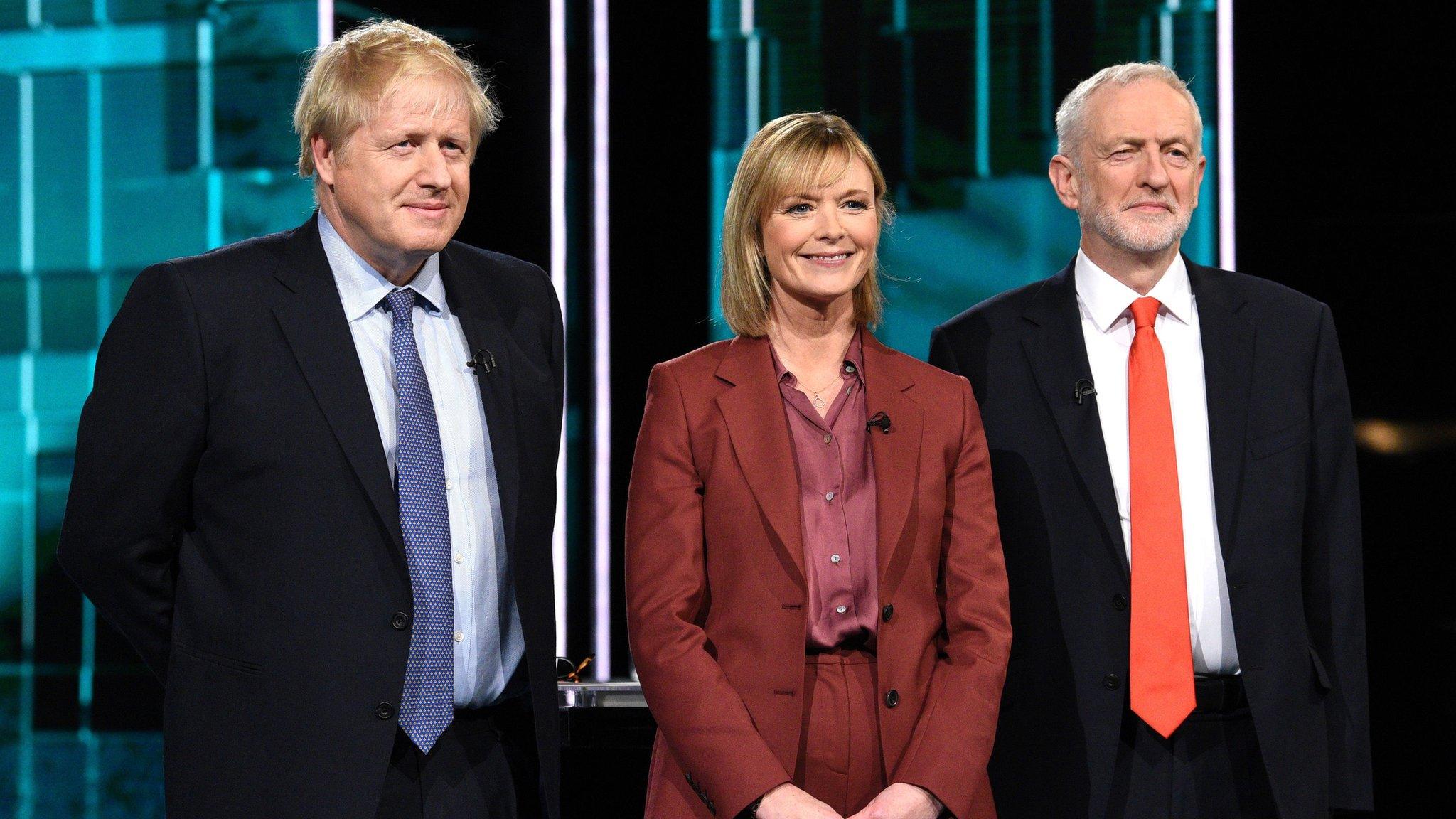'Stopwatch politics' rather than a true leaders' debate
- Published
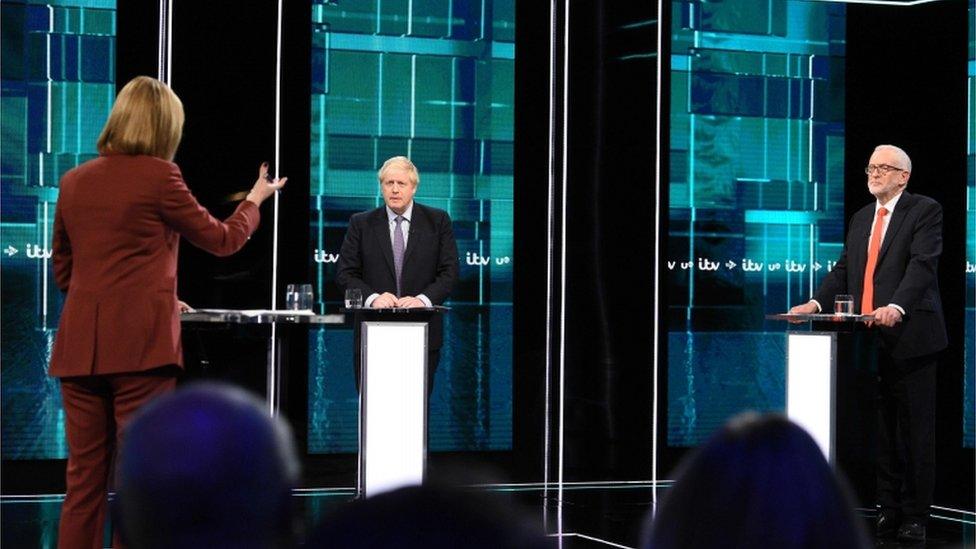
Was this a debate, or an absence of debate?
Did you witness the Big Debate last night? No, me neither. However, I did experience a televised encounter between the prime minister and the leader of the opposition.
C'mon, you must have seen it. On the telly last night? After the footie on the wireless? (Go Scotland!) Yes, that.
It was billed in advance as a head to head confrontation. And a debate. It was neither.
Mostly, the participants gazed entreatingly or purposefully towards the audience, disdaining the other head to their side. Of debate, of discourse, there was pitifully little.
Instead of an opportunity to contrast and compare the policies or the character of these two contenders for the premiership, it was an arithmetical exercise, minutely counting the seconds before one leader was hushed and the other was unleashed.
For this, I am disinclined to apportion too much blame to the moderator, Julie Etchingham. She is experienced and talented.
No doubt, ahead of the event, the plans were discussed in infinitesimal detail by deeply serious people, with designer specs and amusing footwear.
Plus she would have had a voice in her ear advising her, soothingly then abruptly, that Mr Johnson or Mr Corbyn were nearing the end of their allotted time. Hard to ignore entirely.
But, whatever the cause, the outcome was an absence of debate. No flow, no momentum. Indeed, every time discourse appeared perilously close to emerging, it was thwarted.
Instead, we were treated to consecutive mini-orations from each contender, with time strictly allocated.
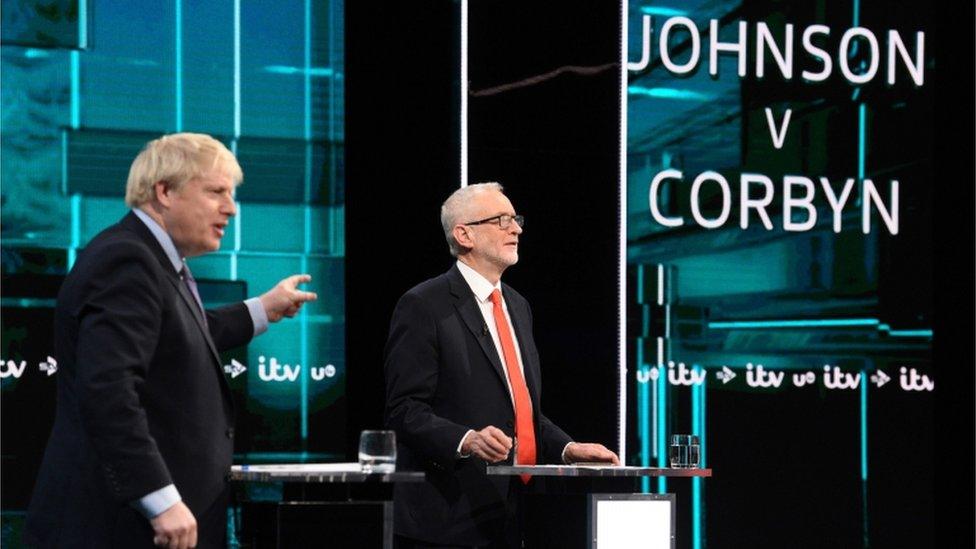
The debate on specific issues never really got going
Issues were seldom allowed to develop, to grow. For example, when Boris Johnson talked of a referendum on Scottish independence, suggesting that his rival was in difficulty on the topic, might it not have been germane to raise with the PM the comments made earlier in the day, on the wireless, by the Scottish Secretary Alister Jack?
Mr Jack had suggested that an overall SNP majority at the 2021 Holyrood elections could count as a mandate for indyref2. Nicola Sturgeon stresses she already has a mandate, but set that aside for a moment. This was significant, a move.
Now, admittedly, the Tories had already slapped down that intervention by the time the TV debate began. But no matter. Wouldn't it have been useful to challenge the PM on this?
Jeremy Corbyn was scarcely likely to do so. He has had enough vacillating problems of his own in this area in the last few days. He would, I feel certain, welcome a period of silence on this, to quote one of his Labour leadership predecessors.
But wasn't there a second or two to challenge Mr Johnson, especially when he was making such a big point of attacking Mr Corbyn on this very point of referendums?
Apparently not. For this was stopwatch politics. Make your pitch. Wait a bit while the other guy has a go. Make another pitch. Disjointed? Never mind. The proprieties of time were observed.
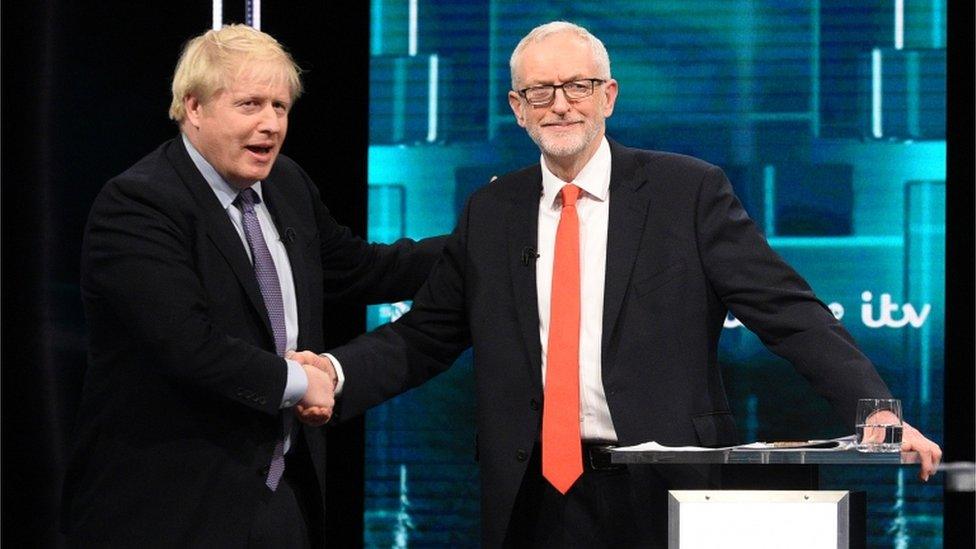
At least they didn't hug
Mind you, there was one direct intervention when the two contenders were constrained to shake hands, promising to be nice. It was for all the world like two discontented toddlers, chided by their nursery supervisor.
At least they didn't hug. For these small mercies, we can be grateful.
The post match pundits featured, among others, Nicola Sturgeon and Jo Swinson. They were less than enthused by a debate in which they had sought to participate.
Still, modern elections are fought in a vast array of spaces. On the doorstep, in local halls, in campaign literature, on social media, in casual conversations - as well as on telly and the wireless.
I feel certain the sundry, competing messages will get through, enabling folk to decide and to vote.
- Published20 November 2019
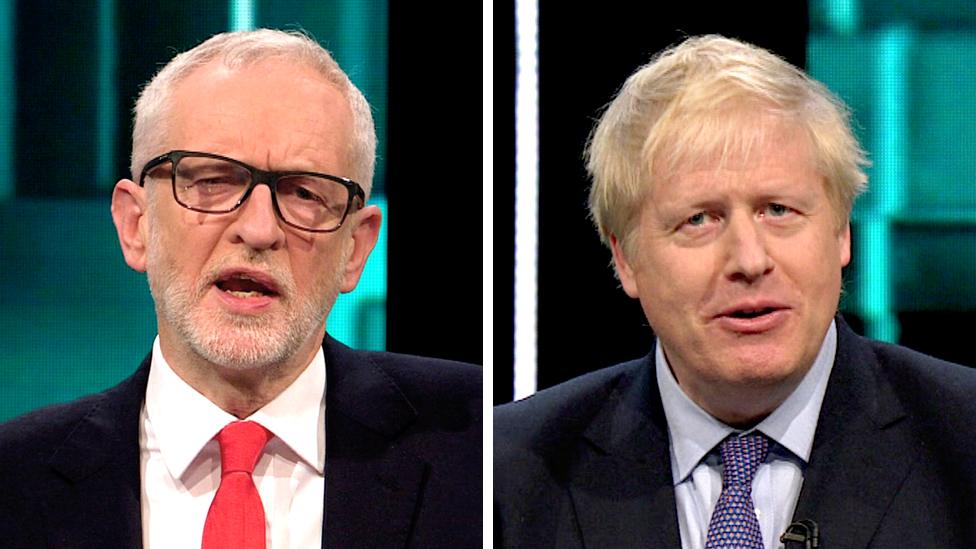
- Published20 November 2019
